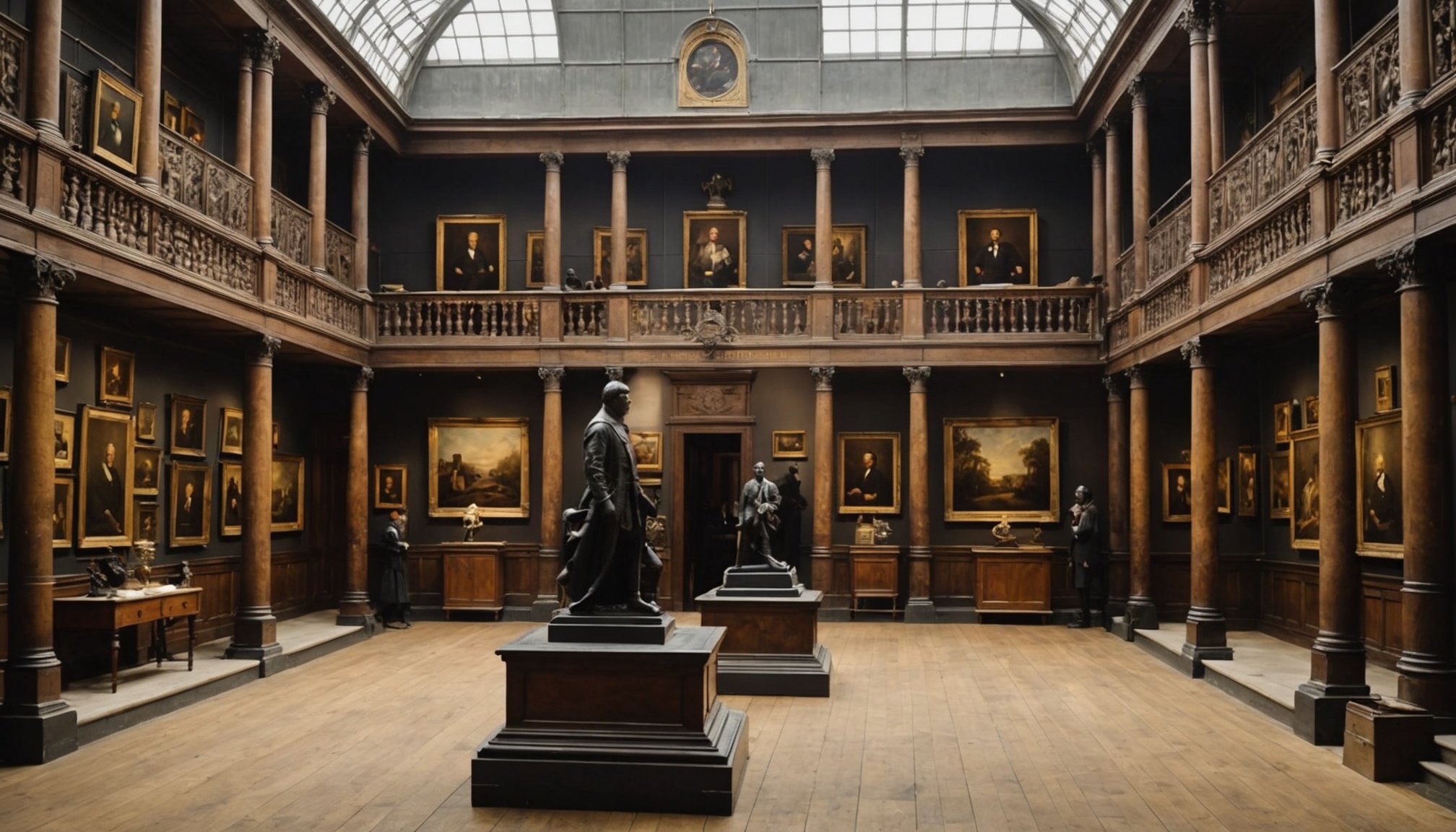Overview of UK Museums Focusing on British Colonial History
UK museums play a crucial role in preserving and presenting the narrative of British colonial history. These institutions house an extensive range of collections and exhibits that provide insight into the complex histories of British expansion and influence across the globe. Through artefacts, letters, weaponry, costumes, and documents, museums showcase the multifaceted aspects of colonial times, offering a comprehensive perspective.
The significance of these museums goes beyond just preservation. They serve as a medium for visitor engagement with historical narratives, deeply enriching the understanding of Britain’s past. Exhibits are often curated to spark dialogue among visitors, encouraging them to question and reflect on historical events and their contemporary implications. This engagement allows individuals to explore the social, economic, and political impacts of colonialism and fosters a deeper awareness of history’s ongoing relevance.
Also to read : Explore the Rich History: Top UK Towns for In-Depth Georgian Era Walking Tours
Types of collections in UK museums often include:
- Ethnographic artefacts from colonised regions
- Art collections reflecting cultural exchange
- Military exhibits displaying weaponry and strategies from colonial campaigns
By offering these diverse types of exhibits, UK museums are essential for fostering informed conversations about British colonial history and promoting a nuanced understanding of its legacy.
Also to read : Discover the UK Towns Where Traditional British Storytelling Comes Alive
Notable UK Museums for Colonial History Exhibits
Exploring museums with rich colonial history collections can help understand the past and its influence on the present. Here, we spotlight some notable museums in the UK, offering unique insights into colonial narratives.
The British Museum
The British Museum is renowned for its significance in showcasing colonial history. Its key exhibits, featuring British colonial artifacts, provide a comprehensive perspective on the nation’s expansive historical reach. Among its famous holdings are the contentious Elgin Marbles and the Rosetta Stone, testaments to the museum’s extensive colonial-era acquisitions. Visitors can enhance their understanding with educational resources, including guided tours and interactive displays, making history accessible to all.
The National Museum of Scotland
This museum delves into Scotland’s colonial connections, presenting major exhibits that illuminate colonial narratives. With themes spanning trade routes to the cultural exchanges of the Empire, it offers a deep dive into Scotland’s role in global history. Visitor information highlights its accessibility, ensuring a welcoming experience for all guests.
The Victoria and Albert Museum
The focus here is on design and craft within colonial contexts, showcasing the colonial impact on cultural evolution. Key exhibits discuss cross-cultural influences on art and design, illustrating the intricate interplay of cultures. The museum also hosts special events and programs, encouraging the public to engage with these important themes.
Themes Explored in Colonial History Exhibits
Exhibits focusing on colonial history delve into various themes of colonialism that help visitors gain educational insights. Common themes include power dynamics, which illustrate how control and authority were negotiated and maintained between colonisers and the colonised. Cultural exchange is another prevalent theme, showcasing how cultures interacted, sometimes leading to the blending of traditions and other times resulting in cultural erasure.
Personal narratives and testimonies play a significant role in understanding the impacts of colonialism on individual lives and communities. By presenting these personal accounts, exhibits provide a more intimate and engaging perspective that underscores the complexities of colonial experiences. These narratives invite visitors to empathise with those who lived through colonial periods, offering a deeper understanding of the effects of colonial rule.
Moreover, these themes contribute significantly to contemporary discussions on colonialism. They challenge modern audiences to reflect on historical injustices and to consider how past colonial practices continue to shape today’s societies. By engaging with these themes, visitors can critically evaluate historical narratives and gain insights into the ongoing legacies of colonialism, fostering a more nuanced and informed discourse on the subject.
The Impact of These Exhibits on Public Understanding
Exhibits play a pivotal role in public engagement by providing visitors with educational experiences that deepen their understanding of colonialism. Museums curate exhibits to shape perceptions of colonial history, making these narratives accessible and thought-provoking. Through visual and interactive storytelling, they encourage visitors to critically reflect on how colonialism has shaped contemporary societies.
For example, curated content often includes personal stories, artifacts, and multimedia displays, all designed to foster a deeper connection. These elements prompt visitors to question preconceived notions and stimulate conversations about historical narratives.
In terms of community responses, diverse educational outreach initiatives stand out. Museums frequently host workshops and public lectures to further explore exhibit themes. These events aim to provide additional context and encourage community participation, creating a platform for dialogue between historians, educators, and the public.
Additionally, museum exhibits often serve as catalysts for visitors to become advocates for a more nuanced understanding of colonialism. By engaging emotionally and intellectually, individuals are more likely to engage in community discussions, supporting multicultural understanding and, in some cases, prompting social change.
Such exhibits are key in reshaping the concepts of history and its ongoing impact through structured educational efforts designed for long-lasting public engagement.
Planning Your Visit to Museum Exhibits
When embarking on a museum excursion, having comprehensive visitor information can greatly enhance your experience. Here are key elements to consider while planning visits. First, check ticket prerequisites, as many museums offer online bookings, saving time on arrival. Explore available tours, both guided and self-guided, catering to diverse interests. Some museums even feature audio tours, making historical narratives more engaging.
Accessibility to museums is an important consideration. Many institutions provide resources such as elevators, ramps, and wheelchairs to accommodate all visitors. Be sure to inquire ahead or visit the museum’s website for specific accessibility details. Additionally, some museums offer sensory-friendly hours, designed for guests who may benefit from a calmer environment.
Timing can significantly affect your museum visit. Recommend timing your visit during weekdays if you prefer a quieter atmosphere, avoiding weekend crowds. Special programming or events often occur on particular dates, offering unique opportunities to experience themed exhibits or guest lectures. Checking the museum’s calendar in advance can help you align your visit with these special activities.
With these insights, planning a museum visit can become a seamless, educational, and enjoyable process, ensuring you make the most of your cultural experience.
Additional Resources for Understanding British Colonial History
Unearthing the intricacies of British colonial history requires delving through various educational resources. The literary landscape offers a treasure trove of recommended colonial history literature, providing deeper insights. Notable works include “The Oxford History of the British Empire” series, which presents comprehensive narrative histories. Books by renowned historians like Niall Ferguson and Kwasi Kwarteng offer varied perspectives on the colonial era’s impact and legacy.
Documentaries and media serve as invaluable tools for exploring the colonial narrative. BBC’s series “Empire” features an engaging exploration of the British Empire’s expansion and influence, narrated through a blend of historical footage and expert interviews. Additionally, “The Crown” provides a dramatized but insightful portrayal of Britain’s post-colonial transition.
For those eager to expand their understanding through online resources, consider enrolling in programs offered by leading institutions. Massive Open Online Courses (MOOCs) such as those on Coursera or edX offer courses exploring the themes and impacts of colonialism. Websites like JSTOR and Project MUSE provide access to academic articles, aiding in comprehensive research.
Together, these resources equip the interested learner with a nuanced understanding of the forces and figures that shaped the British colonial experience, encouraging both reflective and informed discussion.






















